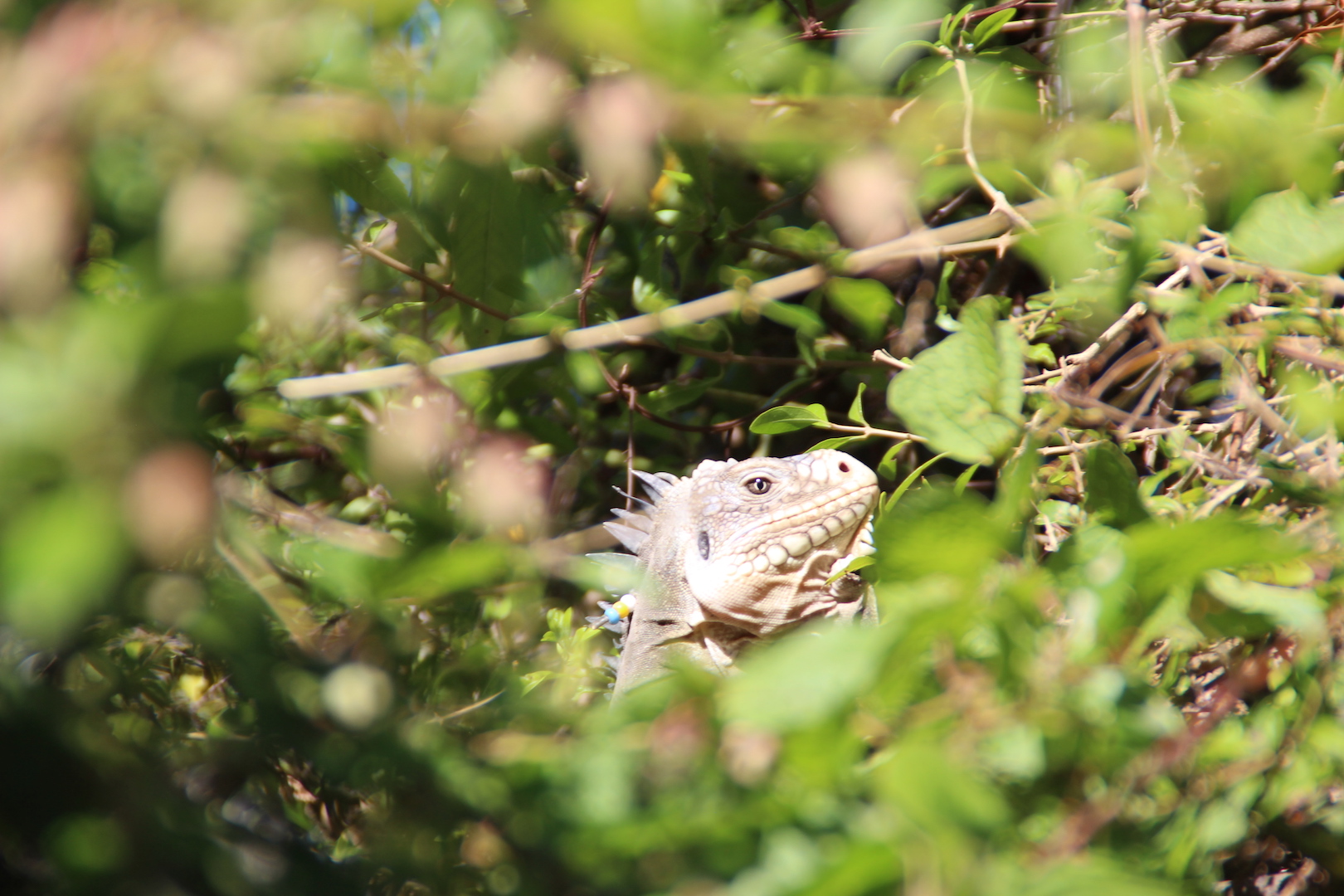ORANJESTAD – At the moment they only subsist in three places on earth. The fear that the Antillean iguana may become extinct on St. Eustatius has increased in recent months, warn environmentalist.
The green iguana, a species not commonly found on the islands, has bred with the indigenous species. Various young, hybrid iguanas have been caught on the island in recent months. Local environmentalists are carrying out “time consuming” excursions to catch them. Last week residents were notified of the discovery of another hybrid iguana.
By John Samson
The problem has only increased with the introduction of the green iguana. There are only about 420 of the indigenous species, while a healthy population is 5,000. Rats, dogs and even people are hunting them. Residents still want to make the ‘Iguana Delicatissima’. The persons who hunt the local iguanas risk a hefty fine.
Nearby St. Maarten is known to have an abundance of Antillean iguanas. Because the bigger and more dominant iguanas were brought to the island, within twenty years the indigenous species will disappear. The same thing is happening on the other islands in the region. Only on Dominica are the Antillean iguanas managing to survive.
Emergency
Presumably the iguanas are being transported unknowingly in freight across the islands. A green iguana was caught on the harbor last month. St. Eustatius’ Nature Foundation (Stenapa) would like more cooperation from the local government. “There really should be an inspector on the harbor who checks incoming ships for these types of animals,” Clarisse Buma of the nature foundation suggests.
The nature foundation via a campaign tries to inform residents of the emergency. The foundation is pleased with the alertness of residents. “If the green iguana gets a foothold, then you as an island really have a problem. They lay eggs four times a year. The local iguana only once a year,” said Buma.
Euthanasia
The captured iguanas are given an injection from the veterinarian in consultation with local authorities. According to Stenapa there is no budget to return the iguanas or to relocate them to another island. The export of these animals appears to be a ‘very time consuming procedure’ due to the ‘international bureaucracy’.








